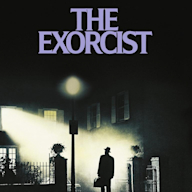Search results
- DictionarySa·mhain/ˈsouən/
noun
- 1. the first day of November, celebrated by the ancient Celts as a festival marking the beginning of winter.
Samhain is a Gaelic festival marking the end of the harvest season and beginning of winter, with Celtic pagan roots. It involves bonfires, divination, veneration of the dead, and contact with the Otherworld, and is associated with Halloween and All Saints' Day.
People also ask
Is Samhain a Celtic death god?
What is the difference between Samhain and Sauin?
What does Samhain mean in Ireland?
Why is Samhain important?
Apr 6, 2018 · Samhain is a pagan festival that marks the end of the harvest and the beginning of the dark half of the year. It involves bonfires, sacrifices, costumes, and interactions with spirits and ancestors.
- 3 min
Jul 10, 2019 · Samhain is a Sabbat that marks the end of the harvest season and the beginning of winter. It is a time to honor the dead, connect with the spirit world, and prepare for the cycle of death and rebirth.
- Patti Wigington
Samhain, the fire festival that marked the beginning of the dark half of the year, is situated between the autumn equinox and the winter solstice.
Samhain was a Celtic harvest festival and a pagan ritual that marked the end of summer and the beginning of winter. It was a time of fear, supernatural events, and sacrifices to the gods, and it was the origin of Halloween.
- The Editors of Encyclopaedia Britannica
Sep 28, 2020 · Samhain was a festival celebrated by the ancient Celts to mark the end of the lighter half of the year and the beginning of the darker half. It was a time of harvest, divination, sacrifice, and liminality, when the veil between the human and spirit realms was lifted.
Aug 11, 2022 · Samhain (also: Samain) was a pastoral/harvest festival celebrated—under various names—across the Celtic world on the evening of October 31st and into November 1st with ceremonial fires and other rituals.


